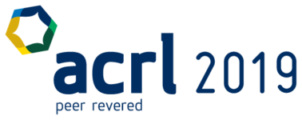Session Description:
Is library and information science (LIS) book publishing biased? Come take a critical look at and gain an understand of publications trends in LIS monographs, areas in which current LIS publishers are lacking, and identify how to help create a more balanced and representative system of LIS book publishing. Librarians interested in publishing a monograph will gain ideas for potential book topics, identify potential publishers, and develop a greater understanding of the LIS monograph publication process and landscape.
